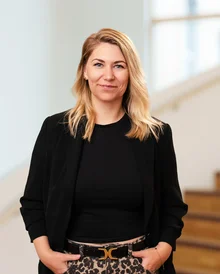Between voluntary service and compulsory service: What the debate on military service reveals about motivation
Prof. Dr. Guido Möllering from Witten/Herdecke University puts the current debate on military service into perspective from a motivational theory standpoint.

After more than 14 years without compulsory military service, a new military service law aims to attract more young people to serve. The plan is for all young men - and women on a voluntary basis - to receive an online questionnaire on their 18th birthday. In it, they are asked to state whether they are generally willing and physically able to perform military service. Anyone who shows interest will be invited to take part in the draft. From 2027, this draft will once again be mandatory for men.
The current draft of the Military Service Act also makes it possible to flexibly activate compulsory military service if voluntary recruitment is not sufficient. A lottery procedure is also currently under discussion. This creates a system between voluntary, compulsory and random.
Prof Dr Guido Möllering, Director and Chair at the Reinhard Mohn Institute of Management (RMI) at Witten/Herdecke University (UW/H), classifies the topic and the various options from a motivation theory perspective.
The four scenarios of the conscription debate
- Online questionnaire with subsequent conscription: a voluntary system with external incentives
Young people who declare their willingness to perform military service in the questionnaire should receive higher pay than before or subsidies for their driving licence. The state is therefore focussing on motivation through rewards. From the point of view of motivation research, however, this is risky. "If volunteering is influenced by external pressure or excessive rewards, fewer people will sign up who would otherwise have done so out of genuine conviction," explains Möllering. In organisational research, this effect is described as "crowding out": External incentives crowd out inner motivation. What is well-intentioned can therefore have the opposite effect - and shift service from social commitment to a purely paid obligation. - Voluntary system with compulsory elements
If too few young people sign up to the voluntary system, it may become compulsory. The criteria for selection are still unclear. A lottery procedure (see scenario 3) would be a possible option. In such a model, service would remain formally voluntary - but those who do not sign up risk being obliged to do so later. "Many people then wait to see if others sign up," says Möllering. "The risk increases that coercion will ultimately dominate." Voluntariness thus loses its actual character. - Drawing lots
If there are not enough volunteers, a random system could be used. Those who are "drawn" have to serve - regardless of their own motivation.
"A lottery system weakens the feeling of self-determination," says Möllering. "Then you hope to be lucky - and don't want to be one of the unlucky ones." As a result, the negative aspects of the service become more prominent. Motivation here arises primarily from a sense of duty or pragmatism, not from inner conviction. - Completely voluntary system
A purely voluntary service would strengthen those who see military service as socially necessary - people who act out of conviction. "Modern equipment and good working conditions can support voluntary motivation," says Möllering. "But meaning, values and trust are crucial - not just financial incentives." Such a system relies on intrinsic motivation, i.e. on people who get involved of their own accord. The challenge: the state must create enough trust for young people to recognise this sense of purpose.
The dilemma remains for politicians: If there are too few volunteers, they have to abandon the principle of volunteering - and risk weakening the motivation of those who would actually be convinced.
Photos for download
Contact person

Svenja Malessa
Press Officer
Administration | Communication & Marketing
Alfred-Herrhausen-Straße 48
58455 Witten
Room number: 2.F05
